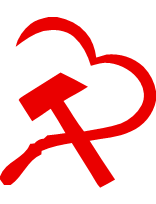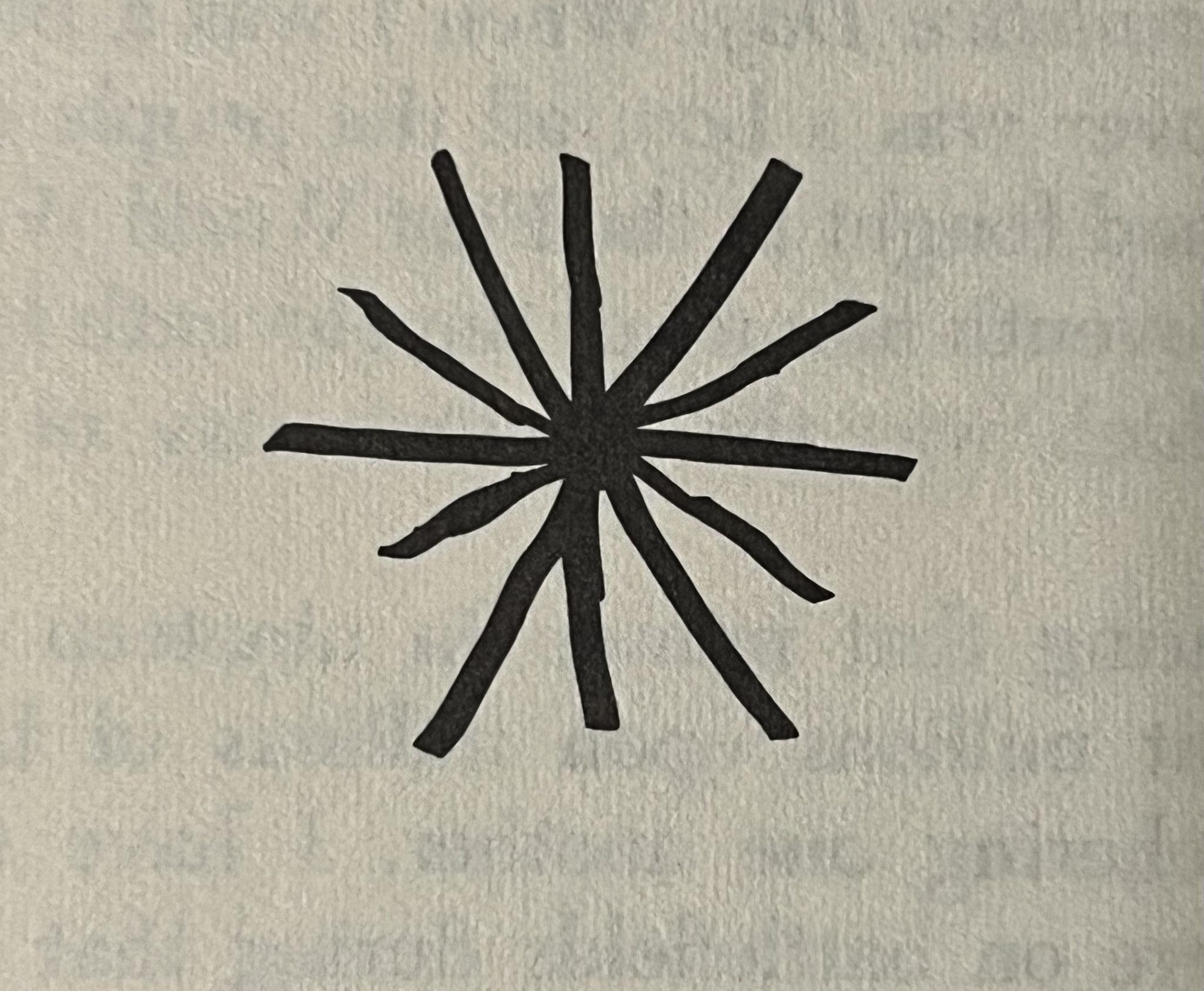Wow this is going great. The hard part is over, and now we have hit a stride. We have learned Karl Marx’s theory of money, and of trade. We have learned what capital is and how it differs from money.
If you’ve made it this far, you’ve done the hardest part. Several people noticed it is getting easy and fun now. All the same, don’t let up til we reach our destination.
Please be chatty in the comments. Let us know you’re here.
The overall plan is to read Volumes 1, 2, and 3 in one year. (Volume IV, often published under the title Theories of Surplus Value, will not be included in this particular reading club, but comrades are encouraged to do other solo and collaborative reading.) This bookclub will repeat yearly. The three volumes in a year works out to about 6½ pages a day for a year, 46⅔ pages a week.
I’ll post the readings at the start of each week and @mention anybody interested. Let me know if you want to be added or removed.
Just joining us? It’ll take you about seven hours to catch up to where the group is.
Archives: Week 1 – Week 2 – Week 3
Week 4, Jan 22-28, we are reading Volume 1, Chapter 6, Chapter 7, and Chapter 8
Discuss the week’s reading in the comments.
Use any translation/edition you like. Marxists.org has the Moore and Aveling translation in various file formats including epub and PDF: https://www.marxists.org/archive/marx/works/1867-c1/
Ben Fowkes translation, PDF: http://libgen.is/book/index.php?md5=9C4A100BD61BB2DB9BE26773E4DBC5D
AernaLingus says: I noticed that the linked copy of the Fowkes translation doesn’t have bookmarks, so I took the liberty of adding them myself. You can either download my version with the bookmarks added, or if you’re a bit paranoid (can’t blame ya) and don’t mind some light command line work you can use the same simple script that I did with my formatted plaintext bookmarks to take the PDF from libgen and add the bookmarks yourself.
Resources
(These are not expected reading, these are here to help you if you so choose)
-
Harvey’s guide to reading it: https://www.davidharvey.org/media/Intro_A_Companion_to_Marxs_Capital.pdf
-
A University of Warwick guide to reading it: https://warwick.ac.uk/fac/arts/english/currentstudents/postgraduate/masters/modules/worldlitworldsystems/hotr.marxs_capital.untilp72.pdf
-
Reading Capital with Comrades: A Liberation School podcast series - https://www.liberationschool.org/reading-capital-with-comrades-podcast/
to think marx wrote all of this without even a single can of monster energy
He had tobacco and liquor instead
but think what he could have accomplished with an ultra fiesta mango
Dude was on a whole other level. In the last 10 years of his life, while often battling illnesses and infections, while reading and researching copiously, he wrote around 30,000 pages of handwritten notes. Avg 3000 pages of notes per year.
Last year I was trying to teach myself to write and, while I did a lot of writing on the computer, I was able to fill a 200 page notebook. I was writing a lot, and maybe got within 1/30th of his output.
Most of what I wrote was crap too.
Yeah one of the things that amazes me most about Marx when I read about him is how much he read and made notes on. He seems to have started the habit when he went to university in Berlin (~1837) and just never stopped.
@invalidusernamelol@hexbear.net @Othello@hexbear.net @Pluto@hexbear.net @Lerios@hexbear.net @ComradeRat@hexbear.net @heartheartbreak@hexbear.net @Hohsia@hexbear.net @Kolibri@hexbear.net @star_wraith@hexbear.net @commiewithoutorgans@hexbear.net @Snackuleata@hexbear.net @TovarishTomato@hexbear.net @Erika3sis@hexbear.net @quarrk@hexbear.net @Parsani@hexbear.net @oscardejarjayes@hexbear.net @Beaver@hexbear.net @NoLeftLeftWhereILive@hexbear.net @LaBellaLotta@hexbear.net @professionalduster@hexbear.net @GaveUp@hexbear.net @Dirt_Owl@hexbear.net @Sasuke@hexbear.net @wheresmysurplusvalue@hexbear.net @seeking_perhaps@hexbear.net @boiledfrog@hexbear.net @gaust@hexbear.net @Wertheimer@hexbear.net @666PeaceKeepaGirl@hexbear.net @BountifulEggnog@hexbear.net @PerryBot4000@hexbear.net @PaulSmackage@hexbear.net @420blazeit69@hexbear.net @hexaflexagonbear@hexbear.net @glingorfel@hexbear.net @Palacegalleryratio@hexbear.net @ImOnADiet@lemmygrad.ml @RedWizard@lemmygrad.ml @joaomarrom@hexbear.net @HeavenAndEarth@hexbear.net @impartial_fanboy@hexbear.net @bubbalu@hexbear.net @equinox@hexbear.net @SummerIsTooWarm@hexbear.net @Awoo@hexbear.net @DamarcusArt@lemmygrad.ml @SeventyTwoTrillion@hexbear.net @YearOfTheCommieDesktop@hexbear.net @asnailchosenatrandom@hexbear.net @Stpetergriffonsberg@hexbear.net @Melonius@hexbear.net @Jobasha@hexbear.net @ape@hexbear.net @Maoo@hexbear.net @Professional_Lurker@hexbear.net @featured@hexbear.net @IceWallowCum@hexbear.net @Doubledee@hexbear.net @Bioho@hexbear.net @SteamedHamberder@hexbear.net @Meh@hexbear.net

I’m still behind by about ten pages, but I’ll be finishing chapter 5 tonight!


Me speaking to a right-winger: “Do you agree with this? The marketplace ‘is in fact a very Eden of the innate rights of man’ where ‘both buyer and seller of a commodity, let us say of labour-power, are determined only by their own free will. They contract as free persons, who are equal before the law. Their contract is the final result in which their joint will finds a common legal expression’, and it is pure Freedom and equality even though ‘each looks only to his own advantage. The only force bringing them together, and putting them into relation with each other, is the selfishness, the gain and the private interest of each’ – do you agree with that?”
Right-winger: “Yes! That’s exactly what you commies need to learn!”
Me: “Oh yeah? Well you just agreed with Karl Marx lmao pwned!”

My god those last two paragraphs of chapter 6 were great.
It’s pretty interesting how rarely labor-power is directly mentioned in any of the Marxist Economics 101 content that exists online. I guess that means we have made it further than the people making that stuff, congratulations.
baby Marxist rehabilitation camp

There was a post the other week where someone asked for an explainer for LTV, not one person had mentioned labor-power. Took me a while to realize why it is such an important distinction, and why Marx stresses it as so important
I’m imagining the sequence of the Capitalist buying cotton, spindles, and labor and just breaking even as an “always sunny” plot where Frank keeps trying crazy schemes to turn a profit on 40 pounds of thread.
Now I got twice as much cotton! So you jabronies need to work 12 hour days instead of 6 hour days!! I need that surplus value!
Watching Moneybags lead the seller of labour power out of the market and into the private sphere of production with a “No Trespassing” sign on it like:

Chapter 6 was really good. It really made me look at things in a different perspective a bit? As in like for example the labor market, actually being a market of sorts? Like I always heard labor market before, but it didn’t have much meeting? Just a platitude, meaningless words. Other than like, it’s hard and frustrating to get a job and how silly the entire process behind job hunting is. But like going to this chapter, it being a market since labor power being a commodity explains it more? or feels like so, but also feels grosser in a way. but I think Marx’s kind of describes that gross feeling at the end of the chapter with this
He, who before was the money-owner, now strides in front as capitalist; the possessor of labour-power follows as his labourer. The one with an air of importance, smirking, intent on business; the other, timid and holding back, like one who is bringing his own hide to market and has nothing to expect but — a hiding.
I also found these interesting, just gonna spoiler tag it as to not take up too much space.
spoiler
the value of labour-power is the value of the means of subsistence necessary for the maintenance of the labourer.
His means of subsistence must therefore be sufficient to maintain him in his normal state as a labouring individual. His natural wants, such as food, clothing, fuel, and housing, vary according to the climatic and other physical conditions of his country. On the other hand, the number and extent of his so-called necessary wants, as also the modes of satisfying them, are themselves the product of historical development, and depend therefore to a great extent on the degree of civilisation of a country, more particularly on the conditions under which, and consequently on the habits and degree of comfort in which, the class of free labourers has been formed.
In all cases, therefore, the use-value of the labour-power is advanced to the capitalist: the labourer allows the buyer to consume it before he receives payment of the price; he everywhere gives credit to the capitalist. That this credit is no mere fiction, is shown not only by the occasional loss of wages on the bankruptcy of the capitalist, [13] but also by a series of more enduring consequences.
but like the later part of this chapter just reminded me of like, my mom living paycheck to paycheck. enough to maybe make food and ends, but never enough to like fully live life? also the idea of like working kind of being a form of credit is something I never thought of. especially with this footnote.
spoiler
“All labour is paid after it has ceased.” (“An Inquiry into those Principles Respecting the Nature of Demand,” &c., p. 104.) Le crédit commercial a dû commencer au moment où l’ouvrier, premier artisan de la production, a pu, au moyen de ses économies, attendre le salaire de son travail jusqu’à la fin de la semaine, de la quinzaine, du mois, du trimestre, &c.” [“The system of commercial credit had to start at the moment when the labourer, the prime creator of products, could, thanks to his savings, wait for his wages until the end of the week.”] (Ch. Ganilh: “Des Systèmes d’Econ. Polit.” 2éme édit. Paris, 1821, t. II, p. 150.)
Regarding the grossness and Marx describing it, yeah as we get further into Capital Marx will get more and more explicit about how much stuff sucks (particularly as Marx kicks down the door to the realm of production)
I can’t wait to comprehend more, the man made horrors of capitalism
 but like hopefully it’s not like too gross or bleak. but its good to really know about everything that really goes on and like yea.
but like hopefully it’s not like too gross or bleak. but its good to really know about everything that really goes on and like yea.
Chapter 6 was really good. It really made me look at things in a different perspective a bit?
We’re starting to get into more ‘Scary Red’ territory rather than academic theories of economics.
As in like for example the labor market, actually being a market of sorts? Like I always heard labor market before, but it didn’t have much meeting? Just a platitude, meaningless words. Other than like, it’s hard and frustrating to get a job and how silly the entire process behind job hunting is.
Yes I was thinking the same. The image you get when you hear “he brings his commodity tot he market” is different from the image you get of “job hunting”
yea! and like I can’t wait to venture more into that ‘scary red’ territory because Marx is really insightful and smart.
I just finished chapter 6 as well and had the same takeaway.
The points he makes about the only difference between a free worker and a slave is the free worker only exchanges a portion of their labor-power is I think very important.
It exposes the goal and endgame of the buyer of labor-power. To own a persons labor-power in its totality is to own them, and by extension own the process of producing labor-power. This includes all the commodities involved in housing, subsistence, education, and medical care.
The value of labor-power is dictated currently by the collective actions of the proletariat in the commody market. However it you had full control over a persons labor-power, you can control what kind of housing, food, medical care, and education they get.
In the absence of totally owning their labor-power, capitalists attempted to instead attack this problem externally by owning the towns the workers lived in. This is WHY company towns existed, becuase slavery was generally outlawed.
Its why we have for profit prison systems. They are effectively the peak of capitalist external intervention in the process of owning labor-power in its totality.
At its core the struggle has always been pure freedom against pure slavery.
yea! and I feel like this is very relevant from Marx to what you said, from chapter 9.
The essential difference between the various economic forms of society, between, for instance, a society based on slave-labour, and one based on wage-labour, lies only in the mode in which this surplus-labour is in each case extracted from the actual producer, the labourer
Ha! Naturally, if anyone is to extract the surplus, it should be the worker, so that they can decide how best to apply this surplus. You can see how this analysis leads us to collectivism.
Although a use-value emerges from the labour process, in the form of a product, other use-values, products of previous labour, enter into it as means of production. The same use-value is both the product of a previous process, and a means of production in a later process. Products are therefore not only results of labour, but also its essential conditions.
…
Although itself already a product, this raw material may have to go through a whole series of different processes, and in each of these it serves as raw material, changing its shape constantly, until it is precipitated from the last process of the series in finished form, either as means of subsistence or as instrument of labour.
This talk gets me thinking of economic complexity. These output>input chains gets longer through the centuries: in the Stone Age, Grug made use-values out of virgin materials, and in Shenzhen, factories assemble components that come from other factories that use components that came from refineries. The complexity of the web grows.
That said, the complexity of modern industry is not byzantine. Comrade Haerdin says here – https://www.haerdin.se/files/videos/marx22_360p.webm – at around 51:30 that there can be around 160 inputs to one workplace; not myriads.
Your points are good, I just wanna further complicate it (particularly wrt stone age, virgin materials and labour)
Should very much note that the “output>input chains” that get longer through the centuries are human production chains, production chains under human management, control and understanding. The chains are predicated on the existence of the ‘natural world’ (the uncaught fish in ch7fn7) which is the result of millions of years of evolutions and developments and ecological relationships which even today we do not fully understand.
The supply chains’ operation also destroys this ‘natural world’ on which it’s premised; oil is limited, ore veins dry up, forests are cleared, soil is exhausted, etc. This destruction can be shifted/alleviated (e.g. from the 70s, pollution reduction in the north was aided by sending the dirtier production south; the ever increasing use of fertilizer to maintain crop yields), but is as Marx notes intrinsic to the capitalist mode of production.
One reason it is intrinsic in my opinion is that capitalism does not view ‘nature’ as producing value.(1) Hence, value, material generally, extracted from nature require no compensation. As Marx says in ch2, if commodities “are unwilling, [man] can use force; in other words he can take possession of them”.(178) It doesn’t matter if it’s a rock, plant, wild donkey or anything else: if a commodity has no owner, it’s “free game”. Marx alludes to the fact that, women, for instance, may be commodities in ch2fn1, but the point isn’t developed further here (or anywhere else in Capital, tbh. Marx dropped the ball on feminism.)
In ch2 Marx further points to the fact that, for owners of commodities to deal with each other as commodity owners, to interact through their commodities; “their guardians must…not appropriate the commodity of the other, and alienate his own, except through an act to which both parties consent. The guardians must therefore recognize each other as owners of private property.”(178) Because, e.g. a tree, is not recognized as the owner of private property, as a commodity owner, a member of civil society, in a word a legal person it is therefore itself a commodity. In chapter 2, brief allusion to women-as-commodities aside, the question of what is and is not a commodity seems simply to be “is it a human or not”.
In chapter 3 and 6 this is further complicated by mention of slaves, humans who are commodities. In the inverse of the conditions for the sale of labour-power we see the conditions for the sale of human beings:
“In order that [labour-power]'s possessor may sell it as a commodity, he must have it at his disposal, he must be the free proprietor of his own labour-capacity, hence of his person. He and the owner of money meet in the market, and enter into relations with each other on a footing of equality as owners of commodities, with the sole difference that one is a buyer, the other a seller; both are therefore equal in the eyes of the law.” (271)
A person can thus be enslaved when they are not the legal equals. This can mean, as in e.g. absolutist France, “The Rights of Man” just don’t exist, no one is equal, or it can mean, as in Yankland, that black people and natives don’t count as “real” humans. Such people are, rather than being commodity-owning members of civil society, part of civilization, uncivilized. They and their property are treated as natural resources; gangs of whites can and did go about with guns in Yankland abducting black people for sale, robbing and massacring native villages and looting graves and ceremonial sites, digging up and farming medicine and hunting places, etc. This is the whole basis of primitive accumulation, which will be the focus of part 8 of the book.
The supply chains thus appear to begin (and Marx begins his analysis presuming) with extraction, but they begin earlier and endlessly circulate in and out of the sphere of ‘social production’ which is Marx’s focus.
(1) Marx seems to sometimes think abstract human labour is physiologically and intrinsically different from animal labour (e.g. page 284 where he creates a metaphysical justification for this). I disagree, and think it weakens his argument to have such metaphysical ideas (and such metaphysical ideas obscure how capital-patriarchy labels e.g. housework as not-work and expropriates the products (reproduced labour-powers) as a natural resources.)
This is a great comment btw, saving to re-read later
Marx alludes to the fact that, women, for instance, may be commodities in ch2fn1, but the point isn’t developed further here (or anywhere else in Capital, tbh. Marx dropped the ball on feminism.)
I think that’s an Engels thing, he develops that somewhere else
Edit:
page 284 where he creates a metaphysical justification for this
I’m reading in another language with a lot of prefaces and such, so the pages are all different. What chapter is this? I’d like to read his original reasoning
I can say with some confidence (happy to be shown incorrect) Engels doesnt pick up the ball Marx dropped. Origin of the Family does not represent picking this ball back up, bc the balls both dropped were
1.“did not realise that the exploitation and subjugation of women intensifies under capitalist mode of production”
-
“did not point out the devaluing of female labour-powers and the systemic dismantling of gender equality in the lower classes going on at the time they were writing”
-
“placed reproductive labour outside of their analysis at a time when capital itself was increasingly concerned with controlling women’s reproductive labour”.
Origins of the Family is also notably based on the same books Marx read, but Engels’ positions are often less nuanced than Marx’s in his excerpt notes. As far as I remember, it does not touch on the above three points.
Federici’s essay in Musto’s Capital 150th anniversary book (cant remember the title) gives a good summary of how Capital!Marx messes up.
Marx’s metaphysical justification is at the beginning of chapter 7 (the paragraph about bees and spiders vs. architects and weavers).
His differentiation is already mushy and metaphysical (and false; spiders, bees, arcitects and weavers all start with plans, but will change the plan if the conditions change), but it particularly collapses later given his discussion of labour-powers’ deformation under division of labour in manufacture and machinery. All the points he notes about human labour power’s uniqueness stop being true in manufacture and machine production.
Marx will also point to instances of human, horse and ox labour being interchangeable in manufacture and machine production, further eroding the justification presented here
Thank you for taking the time to answer me, comrade.
Yeah, I agree with you. Maybe he didn’t consider animals as being able to plan the results of their actions and learn from them? But, as you said, that wouldn’t fit with “human, horse and ox labour being interchangeable in manufacture and machine production.”
But, in this case, couldn’t he be speaking about commodified labor? I can see the argument of how human labor getting commodified turned creative human labor into a sort of ‘animal labor’.
tangential rambling
In the examples of oxen used for human labor, their work seems as merely a tool for a human activity. Maybe this distinction of animal labor in nature and human social labor is a problem with considering nature as a collection of individuals (either individual animals or individual species) instead of a single Whole with multiple perceivable manifestations. In that way, animal labor (without any relation to human activities) could be seen as social, too, I think.
But I’m just rambling and going on tangents now, this is my favorite part of theory 😄 and there’s still a lot to learn
About the commodification of women, I’ll for sure read more into it, thanks!
Tangential rambling is very interesting /genuine, but not quite what I’m talking about wrt “human and animal labour being interchangeable”. What I mean is e.g. when the human is turned only into the prime mover (the power source) of a machine, they are replaceable with an animal entirely, to the point that many early machines were operable by man or animal. Similar, coal power can replace human power, and many early machines were operable by burning coal, or by manually turning a wheel. And then as we move further into manufacture and production, we find humans turned into beings that instinctively repeat the same task endlessly without knowledge of the task’s goal, any will beyond “avoid being beaten or starving”, etc, and this whole ideal-intellectual distinction Marx sets up here becomes much more nonsensical, for example:
In manufacture, the social productive power of the collective worker, hence of capital, is enriched through the impoverishment of the worker in individual productive power. 'Ignorance is the mother of industry as well as of superstition. Reflection and fancy are subject to err; but a habit of moving the hand or the foot is independent of either. Manufactures, accordingly, prosper most where the mind is least consulted, and where the workshop may … be considered as an engine, the parts of which are men.'45 As a matter of fact, in the middle of the eighteenth century some manufacturers preferred to employ semi-idiots for certain operations which, though simple, were trade secrets.
(ch14 section 5, Fawkes edition, p483)
-
Read chapter 6 today, feel like things really kinda clicked to me. Especially provocative to me was this:
If the owner of labour-power works today, tomorrow he must again be able to repeat the same process in the same conditions as regards health and strength. His means of subsistence must therefore be sufficient to maintain him in his normal state as a working individual. His natural needs, such as food, clothing, fuel and housing vary according to the climatic and other physical peculiarities of his country. On the other hand, the number and extent of his so-called necessary requirements, as also the manner in which they are satisfied, are themselves products of history, and depend therefore to a great extent on the level of civilization attained by a country; in particular they depend on the conditions in which, and consequently on the habits and expectations with which, the class of free workers has been formed. In contrast, therefore with the case of other commodities, the determination of the value of labour-power contains a historical and moral element. [Penguin/Fowkes p. 275]
As I see it, we really start to see here how the labour-capital relationship becomes a locus of social conflict when labour-power is commoditized and valued as Marx explains. For example, what, to the labourer, differentiates the “so-called necessary requirements” from the (pardon the internet-speak) “treats,” and how much treats must I get to live a happy and fulfilled life? And, to the capitalist, is my having a happy and fulfilled life really that important? Do the capitalists, as purchasers of labour-power, consider it socially necessary that those in their employ not constantly be fantasizing about killing themselves and everyone around them? Or are they content to preside over the most miserable workforce they can without losing stable reproduction? And on what timescales are the capitalists seeking to maintain the process of social reproduction? And if only a depressing and miserable life of the labourer should be deemed socially necessary, so that even those who accept the bargain to work in this society are desperately unhappy - what then is the recourse of the workers to express, in a socially impactful way, their dissatisfaction with the process?
Well fortunately for us the tendency of the rate of profit is to be fine, so there’s not any pressure to intensify the rate of exploitation by driving wages as close as as possible to the minimum requirements for a worker to stay alive.

“What counts as treats and what is necessary requirements” is a fun question. Two relevant Engels letter excerpts:
The English proletariat is actually becoming more and more bourgeois, so that this most bourgeois of all nations is apparently aiming ultimately at the possession of a bourgeois aristocracy and a bourgeois proletariat alongside the bourgeoisie. For a nation which exploits the whole world this is to a certain extent justifiable Engels to Marx, 7 October 1858
Becoming more bourgeois ofc means that it consumes more, has more treats, etc. So to Engels (and Marx didnt disagree), but 1858 some portion of what the proletariat had was already treats in their eyes.
Another letter is Engels to Kautsky, 12 September 1882:
You ask me what the English workers think about colonial policy. Well, exactly the same as they think about politics in general: the same as what the bourgeois think. There is no workers’ party here, there are only Conservatives and Liberal-Radicals, and the workers gaily share the feast of England’s monopoly of the world market and the colonies.
So by 1882, Engels re-asserts more strongly his 1858 beliefs. One wonders what he would have made of the post-1950s (i.e. post great acceleration and consumer society) workers in the global north. What does this mean in terms of political action? Marx’s letter to Engels from 1869, December 10 may shed some light:
The way I shall express the matter next Tuesday is: that, quite apart from all ‘international’ and ‘humane’ phrases about Justice for Ireland — which are taken for granted on the International Council — it is in the direct and absolute interests of the English working class to get rid of their present connexion with Ireland. I am fully convinced of this, for reasons that, in part, I cannot tell the English workers themselves. For a long time I believed it would be possible to overthrow the Irish regime by English working class ascendancy. I always took this viewpoint in the New-York Tribune. Deeper study has now convinced me of the opposite. The English working class will never accomplish anything before it has got rid of Ireland. The lever must be applied in Ireland. This is why the Irish question is so important for the social movement in general.
So in summary: Marx and Engels would likely look at a lot of stuff we consider necessities as treats, but neither give any hard prescriptions. Marx by 1869 seems to have realised that treats from colonies/imperialism were perpetuating the system and so believed that the English working class needed to be rid of Ireland (I would assume india, etc too, but that wasnt the focus of the internqtionale meeting) before it could accomplish anything.
Edit: regarding what the capitalist cares about, this will be revealed throughout the book (startijg especially in ch10)
GOOD post!
Next week will be Chapter 9 + sections 1-3 of Chapter 10
Chapter 10

chapter 7 is really make me realize the importance of time and the importance of clocks? in a way to measure that like labour-time crystalized into products?
If you want to know more about that (time and capitalism), then this video covers it in a pretty interesting way: https://www.youtube.com/watch?v=hvk_XylEmLo
I found a YouTube link in your comment. Here are links to the same video on alternative frontends that protect your privacy:
Has anyone discussed how the (Marxist) concept of ‘surplus value’ corresponds to the (non-Marxist economic) concept of ‘value added’?
e.g. if I take $5 worth of ingredients and cook and sell a cooked meal for $8, Marx would say I created a use-value (the meal) that absorbed my labour (cooking). The government would say that I added $3 value-added, and if VAT is 10%, I owe them $0.30
They seem like similar concepts. This from Ch.6
‘valorization’ is a hideous word, what was Fowkes thinking
“I need a verb (valorize) related to value, easily turned into a noun (valorization) and not confusible with valuate/valuation”, probably
A service is nothing other than the useful effect of a use-value, be it that of a commodity, or that of the labour. [17]. In Zur Kritik der politischen Okonomie, p. 14 [English edition, p. 37], I make the following remark on this point: ‘It is easy to understand what “service” the category “service” must render to economists like J. B. Say and F. Bastiat.’
Guys, is Granddad being sarcastic again? What is he saying here?
I think in the body-text he is saying that things conceptualised as “services”, as distinct from commodities, are actually commodities in action, and labour is a commodity. So a doctor provides the patient with the use-value of his (expert) labour. But I don’t really understand the footnote text at all; he’s hinting I don’t know at what.
I believe he is hinting that the economists diguise the fact that their labour isnt actually useful (and is in fact socially detrimental) with the category of service. Reading fn16 alongside fn17 makes this especially clear (Marx is calling the economists servants of the devil / the devil again)
"For this very simple operation, all you need to know is that A+B=C/D. Easy! Now let’s have a basic example to make sure you got it:
§ is 7⅗ of a schling, which will amount to 13⅚ of a schproing in a week and two days, considering that the rate of rh’ling keeps constant at 7,63% an hour. Naturally, this gives us a rate of profit of 100%."
the british currency is truly the most painful part of Capital. I feel like there is a social need for a new edition of the book turning it all into dollars just for ease of comprehension
It’s not that hard:
-
12 pence in a shilling
-
20 shillings in a pound
-
pence abbreviated d., shillings s, pounds £
-
a guinea is the same value as a pound, but a guinea is gold and a pound is a token
-

















